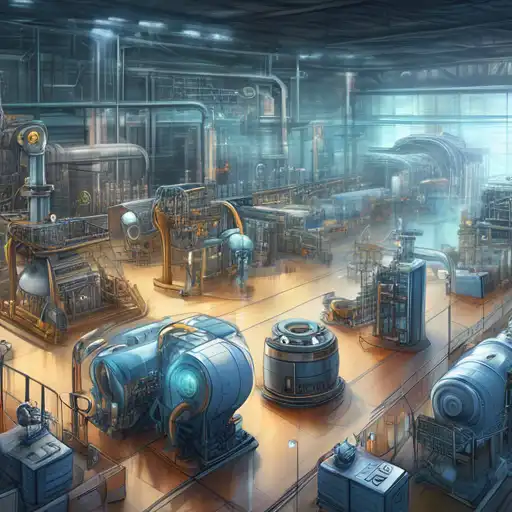Introduction to IoT in Industrial Automation
The Internet of Things (IoT) is revolutionizing the way industries operate, bringing about unprecedented levels of efficiency, productivity, and safety. By integrating IoT technologies into industrial automation, businesses are able to monitor, control, and optimize their operations in real-time. This article explores the profound impact of IoT on industrial automation and how it is shaping the future of manufacturing and production.
Enhanced Efficiency and Productivity
One of the most significant benefits of IoT in industrial automation is the enhancement of efficiency and productivity. IoT devices and sensors collect vast amounts of data from machinery and equipment, enabling predictive maintenance and reducing downtime. This not only saves costs but also ensures that production lines are running at optimal levels.
Real-time Monitoring and Control
With IoT, industrial operations can be monitored and controlled in real-time from anywhere in the world. This level of connectivity allows for immediate adjustments to be made, ensuring that processes are always running smoothly. Furthermore, it enables remote troubleshooting, reducing the need for on-site personnel and minimizing operational disruptions.
Improved Safety Measures
IoT technologies also play a crucial role in enhancing safety within industrial environments. Sensors can detect hazardous conditions, such as gas leaks or equipment malfunctions, and trigger alarms or shutdown procedures to prevent accidents. This not only protects workers but also safeguards valuable assets.
Smart Manufacturing and Industry 4.0
The integration of IoT into industrial automation is a cornerstone of the fourth industrial revolution, known as Industry 4.0. Smart manufacturing leverages IoT to create interconnected systems that communicate and cooperate with each other and with humans in real-time. This leads to more flexible, efficient, and customized production processes.
Challenges and Considerations
Despite its many benefits, the adoption of IoT in industrial automation comes with its own set of challenges. These include concerns over data security, the need for significant investment in infrastructure, and the requirement for skilled personnel to manage and maintain IoT systems. However, with the right strategies and technologies, these challenges can be effectively addressed.
Conclusion
The impact of IoT on industrial automation is undeniable, offering transformative benefits that are reshaping industries worldwide. From enhanced efficiency and productivity to improved safety and the advent of smart manufacturing, IoT is at the forefront of industrial innovation. As technology continues to evolve, the potential for IoT in industrial automation is boundless, promising even greater advancements in the years to come.
